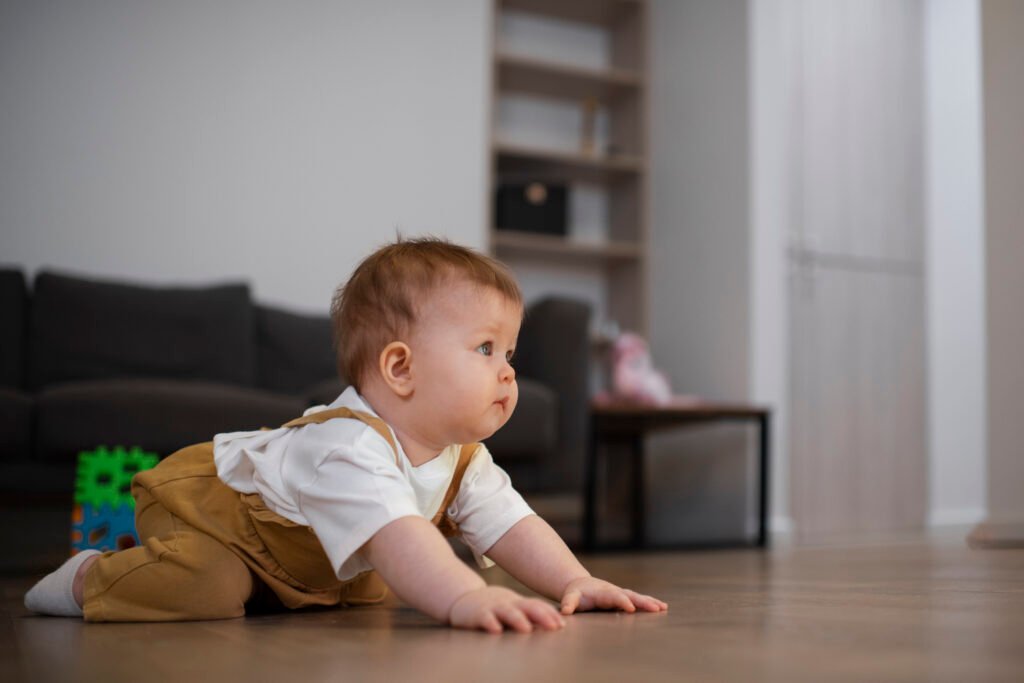Strong routines turn regressions into progress.
One of the most common concerns I hear from parents is: “My baby was sleeping well, and now everything’s changed. Is this a sleep regression?”
It’s a valid question—but here’s something I want you to know: sleep regressions don’t just happen out of nowhere. They tend to show up when there are already underlying challenges with sleep routines or habits. In fact, most regressions are simply your baby’s developmental progress bumping up against an already fragile routine.
Let’s unpack that.
Developmental Leaps Are Normal—Struggles Don’t Have to Be

Babies grow rapidly in their first two years—learning to roll, sit, crawl, walk, talk, and connect. These exciting leaps naturally bring changes to sleep patterns. But they don’t have to throw everything off course.
If your little one already has a strong foundation of sleep—clear, predictable routines, healthy sleep associations, and a secure bedtime rhythm—then these leaps are far less likely to become “regressions.”
On the other hand, if your baby relies on lots of external settling, has inconsistent nap times, or struggles to fall asleep without help, then a leap can amplify those issues and turn into disrupted nights and difficult days.
It’s Not About Preventing Progress—It’s About Supporting It

At Lullababy SOS, I don’t believe in “training” babies to sleep. I believe in supporting families to create routines that feel natural, loving, and predictable. That’s why I work with you to build solid foundations—so that when your baby’s brain is busy learning, their body still knows how to rest.
This is the difference between firefighting regressions and moving through developmental phases with confidence.
When you invest in your routine early on—even just small changes—it becomes your anchor. Your baby knows what to expect. You know how to respond. And transitions feel less overwhelming for everyone.
So, What Can You Do?

- Observe your baby’s cues and make small adjustments before major leaps hit.
- Prioritise routine, even if it’s flexible. Anchoring your day, observing your little one to work out awake windows, create rituals around naps, and bedtimes can make a world of difference.
- Avoid starting new sleep habits during a leap that you won’t want to continue long-term.
- Reach out for support if sleep already feels hard—there’s no shame in needing help.
Final Thought
Developmental change is a sign your child is growing beautifully, but sleep disruptions don’t have to be part of the journey. With the right support and foundations in place, you can move through these transitions feeling calm, capable, and connected.
Let’s shift the narrative. It’s not a regression. It’s progress. And you can absolutely navigate it with confidence.
If you’re feeling unsure how to create a strong sleep foundation or navigate a tricky phase, my self-paced programs or personalised consultations can help you find calm, clarity, and a plan that truly works for your baby.Book your consultation here.


